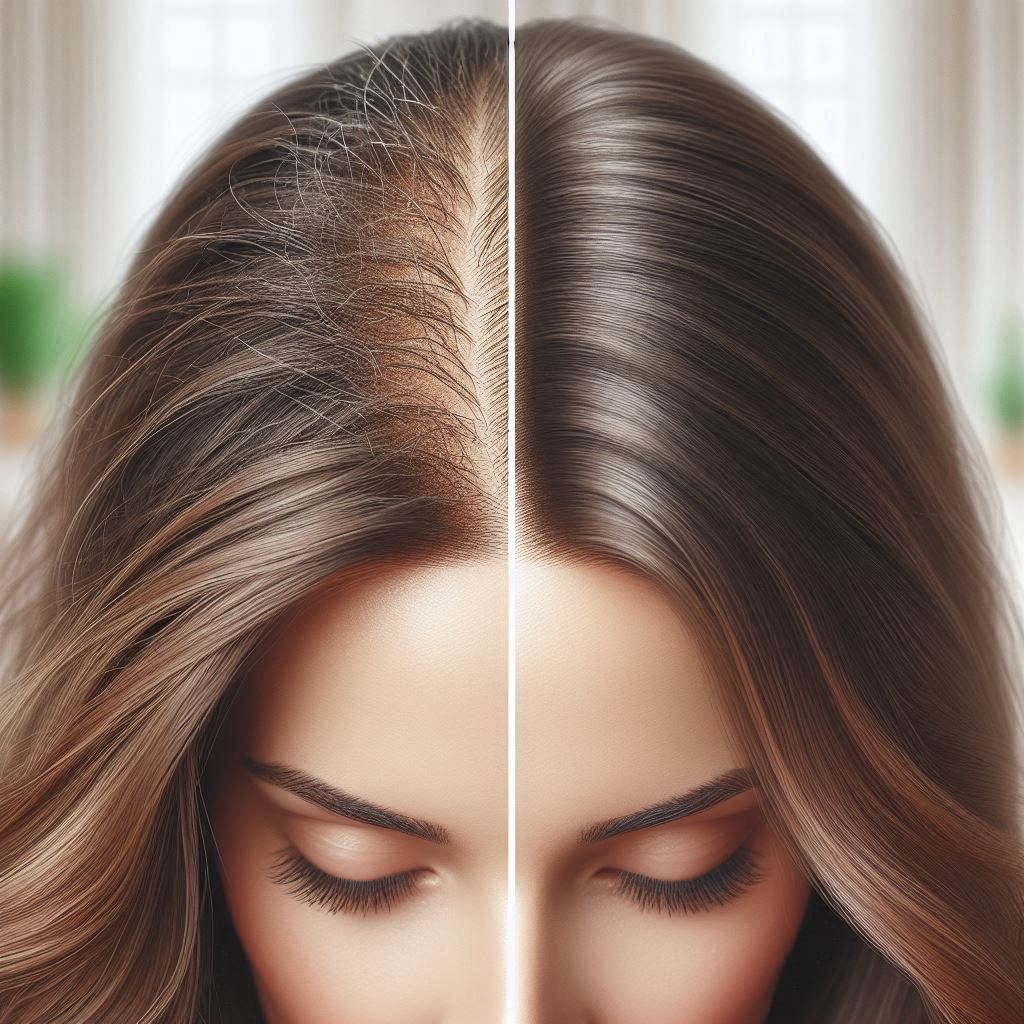Dandruff is a common scalp condition characterized by flaky, itchy skin. Many people notice that dandruff tends to worsen during the cold winter months when dry air and harsh weather conditions strip moisture from the scalp. While commercial anti-dandruff shampoos are available, they often contain chemicals that can further dry out or irritate the scalp.
Fortunately, traditional Desi totkay (home remedies) have been trusted for generations to gently and effectively control dandruff, especially during winters. These natural treatments use ingredients that nourish the scalp, fight fungal infections, and restore moisture — all without harmful side effects.
In this article, we’ll explore why dandruff increases in winters, common causes, and the best natural Desi totkay to keep your scalp healthy and dandruff-free.
Why Does Dandruff Increase in Winters?
Winter weather brings dry air, cold winds, and indoor heating that can leave your scalp dry and flaky. Here are the main reasons dandruff worsens in winter:
- Dry Scalp: Cold weather reduces the scalp’s natural oil (sebum) production, leading to dryness and irritation.
- Reduced Moisture: Harsh winds and low humidity strip moisture from the skin, including the scalp.
- Indoor Heating: Central heating systems make indoor air dry, worsening scalp dryness.
- Harsh Hair Care: Frequent shampooing with strong detergents or hot water can remove natural oils.
Common Causes of Dandruff
Understanding dandruff’s root causes helps in choosing the right remedies:
- Fungal Infection: The fungus Malassezia thrives on oily scalp and causes flaking and irritation.
- Dry Scalp: Lack of moisture leads to skin peeling and dandruff.
- Poor Hygiene or Product Build-up: Infrequent washing or heavy hair products can clog pores.
- Sensitivity: Some people have sensitive scalps that react to harsh shampoos or environmental factors.
Desi Ingredients for Dandruff Control
Many natural ingredients have antifungal, moisturizing, and soothing properties that target dandruff:
- Neem: Known for its powerful antifungal and antibacterial effects, neem helps eliminate dandruff-causing fungi.
- Amla (Indian Gooseberry): Rich in vitamin C and antioxidants, amla nourishes the scalp and prevents dryness.
- Fenugreek (Methi): Contains natural antifungal agents and hydrates the scalp.
- Coconut Oil: Penetrates scalp skin to moisturize deeply and fights fungal infections.
- Lemon: Natural acidity balances scalp pH and helps reduce flakes.
Effective Desi Totkay to Remove Dandruff in Winters
1. Neem and Amla Hair Rinse
Ingredients:
- A handful of neem leaves
- 1 tablespoon amla powder
- 4 cups water
Instructions:
- Boil neem leaves in water for 10 minutes and strain.
- Add amla powder to the neem water and mix well.
- Use this rinse after shampooing to soothe the scalp and reduce dandruff.
2. Fenugreek Seed Paste
Ingredients:
- 2 tablespoons fenugreek seeds
- Water for soaking
Instructions:
- Soak fenugreek seeds overnight.
- Grind into a smooth paste and apply directly to the scalp.
- Leave for 30 minutes before washing off with a mild shampoo.
- Use 2-3 times a week for best results.
3. Warm Coconut Oil Massage with Lemon Juice
Ingredients:
- 2 tablespoons coconut oil
- 1 teaspoon fresh lemon juice
Instructions:
- Warm the coconut oil slightly and mix in lemon juice.
- Massage gently into the scalp for 10-15 minutes.
- Leave it overnight and wash off the next morning.
- Repeat twice a week.
4. Herbal Hair Mask Using Yogurt and Turmeric
Ingredients:
- 3 tablespoons plain yogurt
- 1/2 teaspoon turmeric powder
Instructions:
- Mix yogurt and turmeric to form a smooth paste.
- Apply evenly to the scalp and hair.
- Leave for 20-30 minutes before rinsing.
- Yogurt moisturizes while turmeric’s antibacterial properties fight dandruff.
Tips to Prevent Dandruff During Winters
- Regularly moisturize your scalp with oils or hair masks.
- Avoid washing hair with very hot water; use lukewarm water instead.
- Choose mild, herbal shampoos free of harsh chemicals.
- Maintain a balanced diet rich in vitamins A, D, and E for scalp health.
- Avoid excessive use of styling products that can clog scalp pores.
Conclusion
Dandruff may be a common winter woe, but it doesn’t have to disrupt your comfort or confidence. By using these simple, effective Desi totkay featuring neem, amla, fenugreek, coconut oil, and lemon, you can naturally soothe your scalp, reduce flakes, and enjoy healthier hair all winter long.
Consistency is key — try these remedies regularly and combine them with good hair care habits to keep dandruff at bay naturally. Embrace the power of traditional wisdom for a flake-free, nourished scalp this winter!
